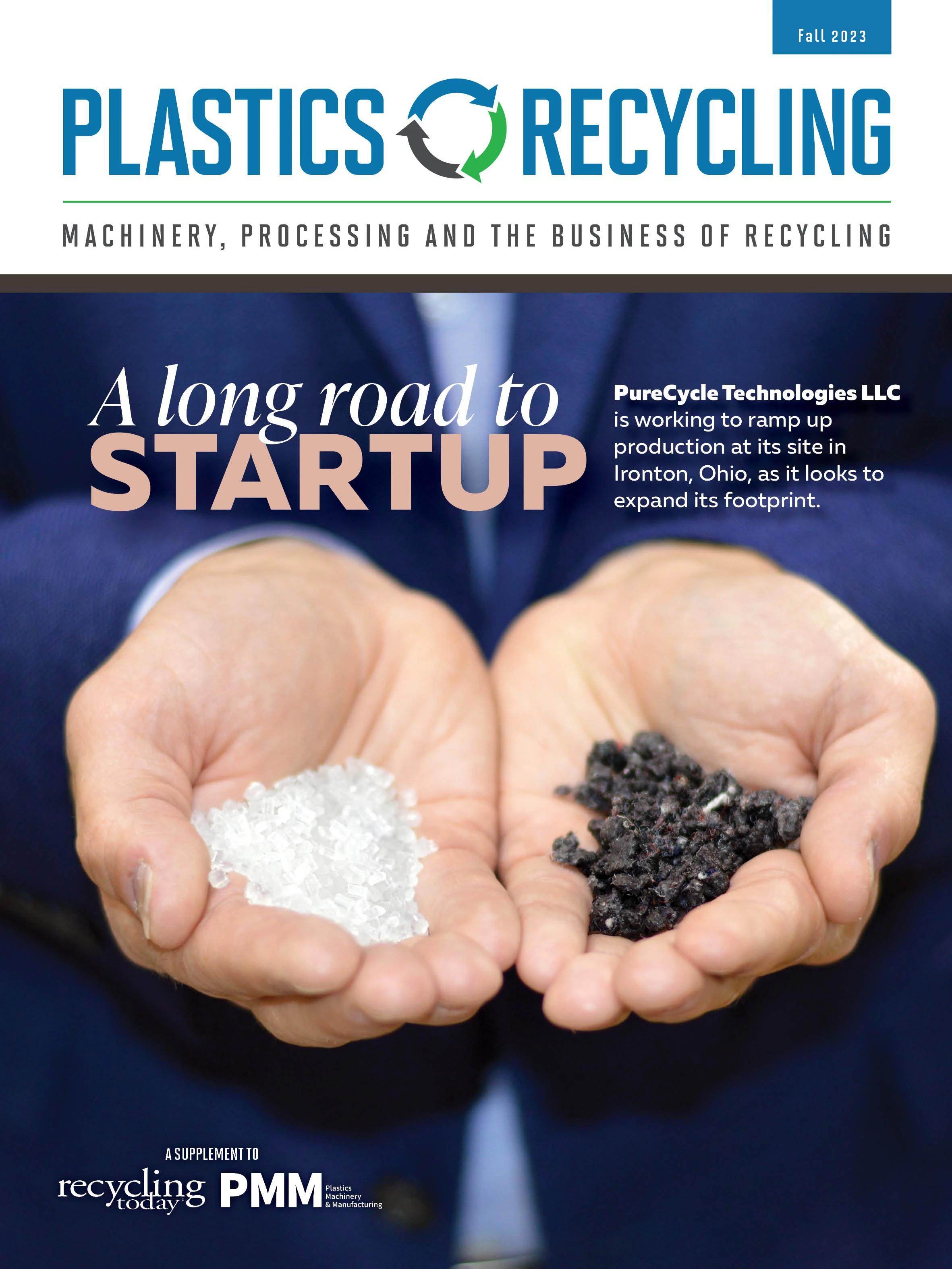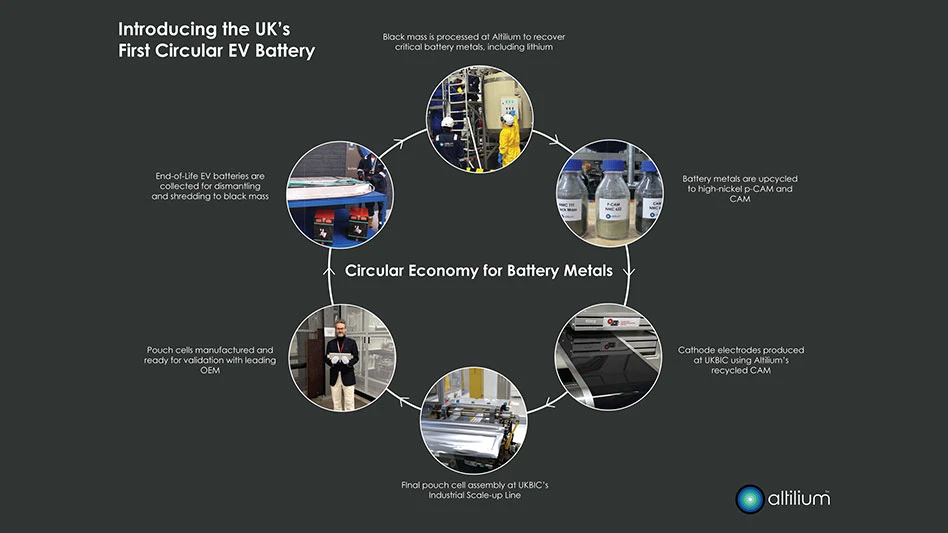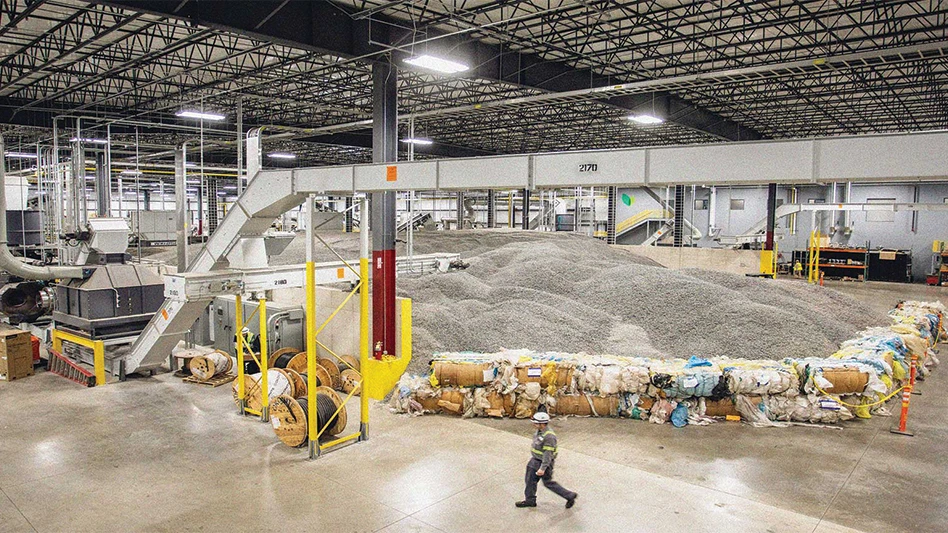
Circular Polymers by Ascend is turning postconsumer carpet into Cerene, a new line of recycled polymers and materials made using its proprietary technology.
The Cerene line includes polyamide 6 and 66, polyethylene terephthalate (PET), polypropylene (PP) and calcium carbonate, and the company says the recycled materials can be used as a consistent, sustainable feedstock for applications including molding and compounding. The new line also can be used in many high-performance applications, which is unusual for postconsumer recycled (PCR) polymers, according to company officials.
“Customers around the globe are seeking consistent and reliable postconsumer recycled materials,” says Maria Field, business development director of Circular Polymers by Ascend. “Cerene is mechanically recycled using a process that minimizes our carbon footprint and environmental impact.” Headquartered in Houston, Circular Polymers by Ascend converts postconsumer carpet into fiber and pellets using a proprietary process in its Lincoln, California, factory.
The launch of the Cerene line follows Ascend Performance Materials’ purchase last year of a majority stake in Circular Polymers. Thanks in part to Ascend Performance Materials’ experience in providing nylon engineered resins for high-performance applications, the new line can be tailored into compounds to help companies balance performance and sustainability targets. Circular Polymers is targeting the automotive industry, including electric vehicle manufacturing, as well as the home appliances market. PP and PET in the Cerene line can be used in consumer products, textiles, engineered wood and other applications.
“Because the nature of postconsumer recycling can lead to variability, one major challenge for manufacturers looking to incorporate recycled feedstock is consistency, quality and reliability of supply,” Field says. “Because of our vertical integration combined with the availability of landfill-bound carpet, we can assure our customers that they can count on consistent, readily available materials that will scale to their needs, even for demanding applications.”


Based in Houston and with a factory in Lincoln, California, Circular Polymers by Ascend aims to provide new life for every component of carpet and backing, and says it has redirected 85 million pounds of carpet from landfills since 2018.
Circular Polymers collects the carpet for recycling and thus better controls the quality of material in the supply chain. Through its proprietary mechanical recycling process, it can produce plastics that rival virgin materials, according to Field.
“In our space, it’s a little bit more challenging because we have to meet the higher thresholds of performance,” Field says. “We [produce] parts under the hood of your car … the thresholds of performance and quality that we need to meet is really, really high.”
While it is not uncommon for PCR materials to be used in applications such as consumer packaging, their use in high-performance applications is more challenging.“What Ascend brings to the table is engineering leadership to bring our polyamide products into higher-value, longer-lasting applications,” Circular Polymers CEO David Bender says. The company aims to provide new life for virtually every component of the carpet and backing. Since 2018, Circular Polymers by Ascend has redirected 85 million pounds of carpet from landfills.
More than 4 billion pounds of carpet go to landfill in the United States every year, Bender says. At its California plant, the company can recycle about 95 percent of the material that comes in.
Currently, California is the only state that has an extended producer responsibility (EPR) law in place for carpet. EPR legislation imposes fees upon the makers or distributors of specified products to help cover the costs of the materials’ disposal or environmental mitigation.
New York recently became the second state to enact an EPR law targeting carpet. The New York law goes into effect Dec. 28, 2024, with implementation of carpet collection programs July 1, 2026.
As more states across the country enact EPR laws for the carpet industry, it could create additional business opportunities for carpet recyclers.
Sponsored Content
Labor that Works
With 25 years of experience, Leadpoint delivers cost-effective workforce solutions tailored to your needs. We handle the recruiting, hiring, training, and onboarding to deliver stable, productive, and safety-focused teams. Our commitment to safety and quality ensures peace of mind with a reliable workforce that helps you achieve your goals.
“We’re working with a number of states who have interest in expanding their circular economy to include carpet, so, we do see this expanding,” Bender says.
Get curated news on YOUR industry.
Enter your email to receive our newsletters.

Explore the Fall 2023 Plastics Recycling Issue
Check out more from this issue and find your next story to read.
Latest from Recycling Today
- Returpack reports increased DRS activity in Sweden
- Trade groups align against European export restrictions
- Construction, auto sectors show mixed signals
- Politics in Turkey threaten recycled steel outlet
- Toppoint Holdings expands chassis fleet
- Lego creates miniature tire recycling market
- Lux Research webinar examines chemical recycling timetables
- Plastics producer tracks pulse of wire recycling market







